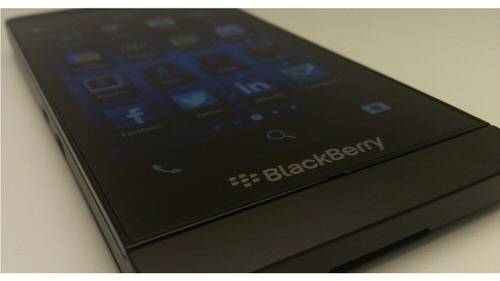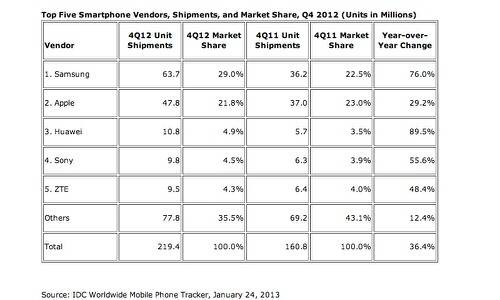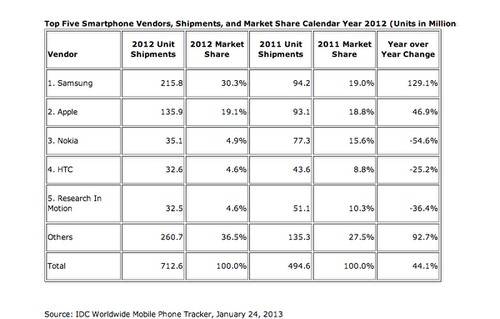
BlackBerry appears to be back on track. It has stopped losing money like a Hollywood starlet with a crack addiction, finally has new products on the market and a roadmap to grow in 2013 and beyond. Thorsten Heins and company appear poised to stake a claim for what has become the most important spot in the Smartphone Wars.
The Battle for Number 3
Two different aspects define the Battle for Number 3: platform and product. For platform, Google’s Android and Apple’s iOS are the top two mobile operating systems on the market. When it comes to product, the Apple/Samsung duopoly dominate the shipments of smartphones.
Then there are the challengers.
In one corner we have BlackBerry, the erstwhile Canadian smartphone manufacturer formerly known as Research In Motion. Conveniently, its platform and product go by basically the same name. In the other corner we have Windows Phone from Microsoft with smartphones built by the likes of Nokia, HTC and Samsung. Waiting in the wings for their shot at the Battle for Number 3 are upstarts like Firefox OS from Mozilla, Tizen from the Linux Foundation and Ubuntu from Canonical. Considering that none of those would-be competitors actually have a product on the market, we can safely call this a two-horse race between BlackBerry and Windows Phone.
In the United States, BlackBerry has 5.9% of the platform market share, according to a January report from analytics firm comScore. Microsoft’s Windows Phone has 3.1%.

For the time being BlackBerry is winning the Battle for Number 3. That may be a little misleading though as BlackBerry’s U.S. market share came from its long tail legacy BlackBerry products, not the new BlackBerry 10 operating system that completely splits from its older products. That also only includes the United States. The U.S. is often indicative of trends in the global smartphone industry but not the tell-all for overall market trends. For instance, Apple’s iPhone dominates in the U.S. but Android claims the No. 1 global operating system with strong growth overseas.
That brings us to more substantive numbers: actual smartphones shipped. In the last quarter of 2012, Samsung shipped 63.7 million smartphones. Apple shipped 47.8 million iPhones. The next three spots on the list all come from Android manufacturers with China-based Huawei in the third spot, Sony fourth and ZTE fifth, according to a January report from research firm IDC.

The goal for BlackBerry and Nokia then is to climb the ladder with their own operating systems to dislodge the Android Army (which also includes the likes of LG, Motorola, Kyocera and several smaller manufacturers). If we look at all of 2012, The Battle for Number 3 comes very close with Nokia, HTC and BlackBerry all within a couple million shipments of one another (Nokia’s strength comes on the tail of its dying Symbian platform).

Basically, it is wide open. Thorsten Heins and BlackBerry may have steadied the ship, but it still has a lot of work to do to solidify No. 3 in both platform and product. Who will emerge as the winner? That is the topic of this week’s ReadWrite Mobile poll. Vote below and let us know who you think will win (and why) in the comments.

















